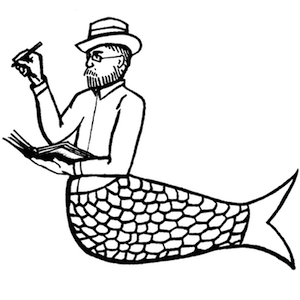
Hitler once had a friend, of sorts: August ‘Gustl’ Kubizek. In the 1950s Kubizek wrote a memoir of young Adolf, a careful but somewhat sentimental and admiring one.
For a vital phase during the early years of his life, his late teenage years in Linz and Vienna, when we otherwise have tantalisingly little to go on, Hitler had a personal—and exclusive —friend, who later composed a striking account of the four years of their close companionship. This friend was August Kubizek. His account is unique in that it stands alone in offering insights into Hitler’s character and mentality for the four years between 1904 and 1908. It is unique, too, in that it is the only description from any period of Hitler’s life provided by an undoubted personal friend—even if that friendship was both relatively brief and almost certainly one-sided. For, like everyone else who came into contact with Hitler, Kubizek would soon learn that friends, like others, would be dropped as soon as they had served their purpose.
Ian Kershaw, Preface, The Young Hitler I Knew
Kubizek’s book isn’t very good, but it is very interesting, often inadvertently so. It can also be strangely amusing. In this passage Hitler is revealed as a furious young prig. (Kubizek and Hitler were looking for a flat for the former, newly moved to Vienna; Hitler was already living there.)
I was very depressed and low-spirited and full of home sickness. What kind of big city was this Vienna? Full of indifferent, unsympathetic people—it must be awful to live here. I walked, despairing and miserable, with Adolf along the Zollergasse. Once more we saw a notice ‘Room to Let.’ We rang the bell and the door was opened by a neatly dressed maid, who showed us into an elegantly furnished room containing magnificent twin beds. ‘Madame is coming immediately,’ said the maid, curtsied, and vanished. We both knew at once that it was too stylish for us. Then ‘Madame’ appeared in the doorway, very much a lady, not so young, but very elegant.
She wore a silk dressing gown and slippers trimmed with fur. She greeted us smilingly, inspected Adolf, then me, and asked us to sit down. My friend asked which room was to let. ‘This one,’ she answered, and pointed to the two beds. Adolf shook his head and said curtly, ‘Then one of the beds will have to come out, because my friend must have room for a piano.’ The lady was obviously disappointed that it was I and not Adolf who wanted a room, and asked whether Adolf already had a room. When he answered in the affirmative, she suggested that I, together with the piano I needed, should move into his room and he should take this one. While she was animatedly suggesting this to Adolf, through a sudden movement the belt which kept the dressing gown together came undone. “Oh, excuse me, gentlemen,” the lady exclaimed, and immediately fastened the dressing gown together again. But that second had sufficed to show us that under her silk covering she wore nothing but a brief pair of knickers.
Adolf turned as red as a peony, gripped my arm, and said, ‘Come, Gustl.’
I do not remember how we got out of the house. All I remember is Adolf furiously exclaiming as we got into the street again, ‘What a Mrs Potiphar.’ Apparently, such experiences, too, were part of Vienna.
Perhaps not every boy in his late teens would be so appalled by this sort of Mrs Robinson (Potiphar) style attempted seduction.
It’s an uncomfortable fact that Hitler, the man who brought so much horror to the 20th century, is something of a comic figure, an opinionated Chaplin-moustached buffoon apt to get into towering rages. His younger self seems almost commonplace; reading about him reminded me of all those angry and frustrated would-be tyrants on the internet, shouting listen to me, to me, to me. It also made me think of Chris Morris’s Four Lions. Amusing in its way, but not entirely reassuring. The one thing they all seem to have in common is unlimited self-belief. And as G K Chesterton wrote…
believing in himself is one of the commonest signs of a rotter. Actors who can’t act believe in themselves; and debtors who won’t pay […] Complete self-confidence is not merely a sin; complete self-confidence is a weakness. Believing utterly in one’s self is a hysterical and superstitious belief like believing in Joanna Southcote: the man who has it has ‘Hanwell’ [a psychiatric hospital] written on his face as plain as it is written on that omnibus.
It takes a strange time for the self-believers to be believed in by others; let’s hope we don’t have another financial crash any time soon.
Note: I will be launching a Substack in 2024 at https://fishmandeville.substack.com/. You can subscribe for free now, if you want.
Paul Fishman (Bristol, January 2015)
August Kubizek (translated Geoffrey Brooks) 1953, 2006 The Young Hitler I Knew (London: Greenhill)
See also Beryl Bainbridge’s superb (largely) comic novel about Hitler as a young man visiting Liverpool before the First World War (he may really have done this): Young Adolf (London: Abacus).
Extract from G K Chesterton’s Orthodoxy (1908).

